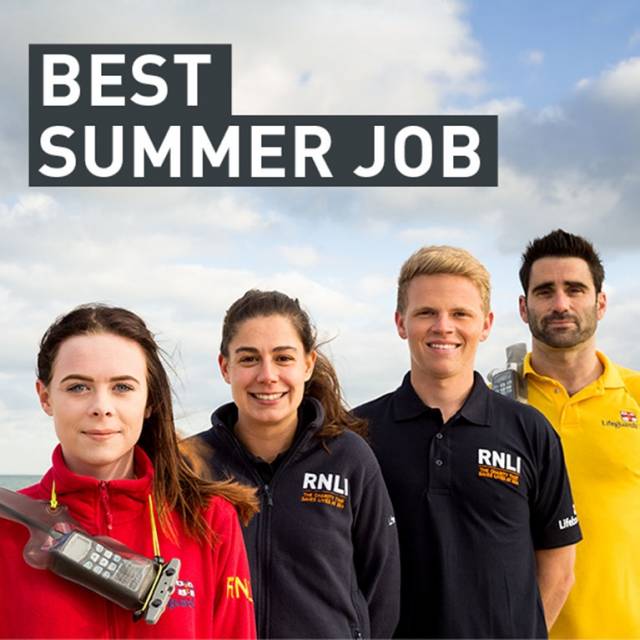Recruitment has opened in Northern Ireland for this summer’s crop of beach lifeguards and face to face fundraisers. Both roles are essential in supporting the RNLI’s aim to keep people safe and prevent tragedies around the North Coast and in County Down.
Successful applicants for beach lifeguarding will receive world class training in search and rescue, lifesaving and casualty care techniques, as well as boosting their CV’s with invaluable skills that will wow future employers.
Recruits will also be trained in using the latest lifesaving equipment including rescue boards, rescue tubes and defibrillators.
Mike Grocott, Area Lifesaving Manager said: ‘I think working as a lifeguard has got to be one of the RNLI’s best summer jobs. Of course it’s incredible to be able to call the beach your office but far more importantly than that, you are there to make sure the public enjoy it in the safest possible way.
‘But make no mistake. This is a demanding job requiring commitment, skill and a clear head. We want people with the courage, determination and the ability to draw on their training and make the right decision if someone’s life is in danger.’
‘We are now also recruiting for face to face fundraisers, who work alongside our lifeguards on the beaches on the north coast and in County Down during the summer to provide people with important safety advice. They also have a key role in raising money for the charity so that it can continue providing a lifesaving service.’
Applicants will need to be a dynamic and positive ambassador for the charity, actively engaging with communities and inspiring support for our work to prevent the loss of life on the water.
Speaking of the face to face fundraising role, Mr Grocott added:
‘A good fundraiser generally has to be friendly and relaxed, but also energetic, able to talk to anyone and have fun and be passionate about what they do.
‘We will provide quality training which will make sure you feel confident and capable by the time summer begins. You’ll be developing new skills, having fun and working at the beach, this has to be one of RNLI’s best summer jobs.’































































